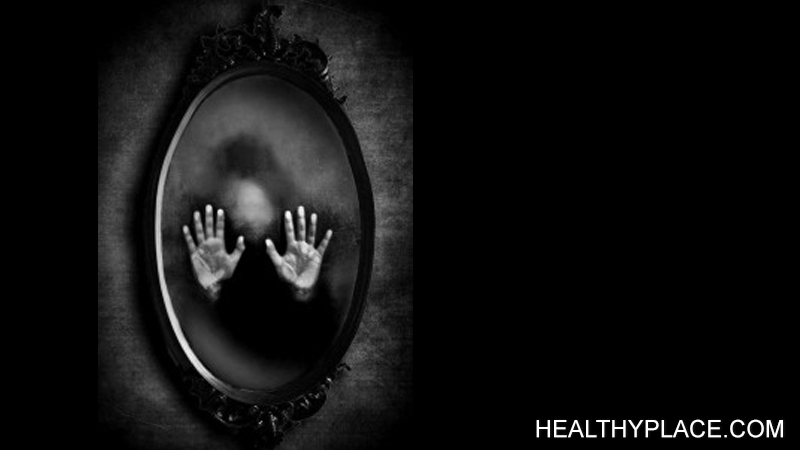Does Mental Illness Serve a Purpose?

One of the most memorable mental health therapy sessions I have ever had focused almost entirely on the question “what does your anorexia do for you?" That was it, just those few words, lost on the vast, white surface of the display board. There were no hidden meanings, no underlying hints of the rhetorical. I was simply faced with the one question I had never been seriously asked before: does mental illness serve a purpose? And my mind exploded, shifting perspectives in a rare and colossal flash of clarity.
Did My Mental Illness Serve a Purpose?
I had spent so much of my life as the recipient of facts and judgments which “proved” the stupidity of my illness. Proved I was acting out. Proved I was broken. But lost somewhere in the void was the method behind the madness. Some part of my hideous, lonely illness was also my interim lifebelt. My all-important form of escapism.
Anorexia took away my joy -- but gave me a sense of purpose. It ended friendships -- yet filled me with a warped companionship. It stripped me of my life goals, and still, I clung tighter. Because this perverse, distorted investment gave me the invisibility I craved so intensely.
The more I felt myself fade, the harder people had to look to find me. And I needed that. I needed people to look.
The heartbreak and suffering created by mental illness can be so intense that the ensuing guilt over having a mental illness is debilitating. We adhere to our painful, broken routines because the thought of "recovery" or change is too frightening. Too alien. Too hard. And no matter how much we want it, our lack of self-worth restricts us from moving forwards.
The concept of wanting something we’re afraid of is a tale as old as time. That boy who gives us butterflies, that job opportunity we don’t think we deserve, or a sense of normalcy that can come from living life again. From getting better. From embracing recovery as our right and not a stipulation.
Mental Illness Served a Purpose, But the Negatives Were Too Great
What that therapy session taught me, was that none of us are functioning on full consciousness. Mental illness is not a decision but a circumstance, and when realised, breaking the cycle becomes that little bit easier and hating ourselves becomes that little bit harder. Because being "crazy" is perhaps not quite so crazy after all.
We are not insane, we are not worthless, and it is never too late to fight for the beauty of change.
APA Reference
Crowley, H.
(2015, May 2). Does Mental Illness Serve a Purpose?, HealthyPlace. Retrieved
on 2026, March 3 from https://www.healthyplace.com/blogs/toughtimes/2015/05/what-does-your-mental-illness-do-for-you
Author: Hannah Crowley
You are right--mental illnesses are nearly always an effort to hold onto something. Often they are addictions that the mind uses to feel "good," or "better," when it can't feel safe. Learning to work through limiting beliefs can help the mind feel safe in a new way, and then letting go of the old crutches can seem very natural.